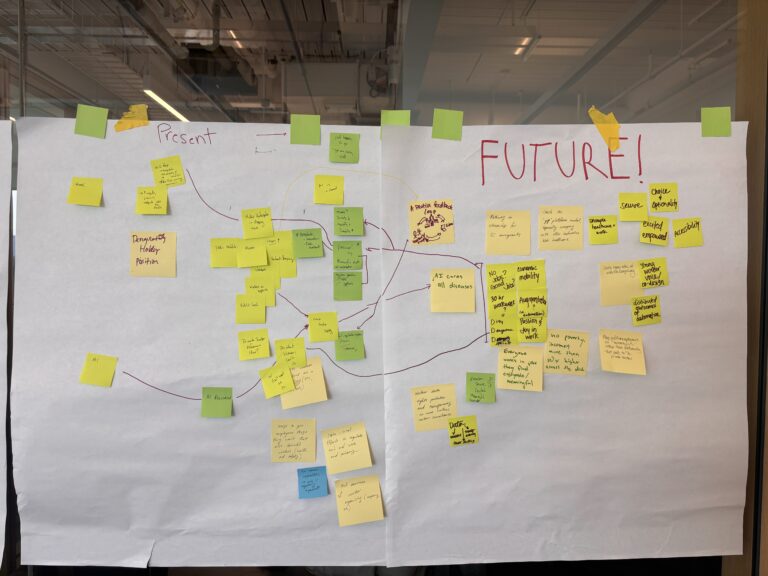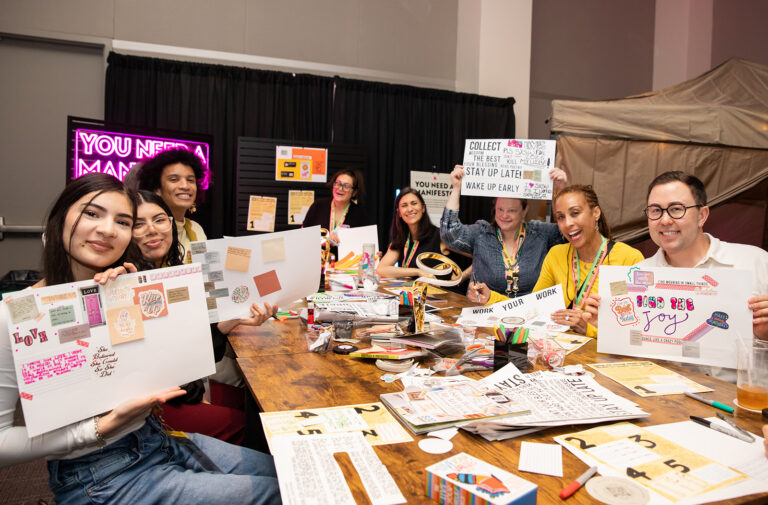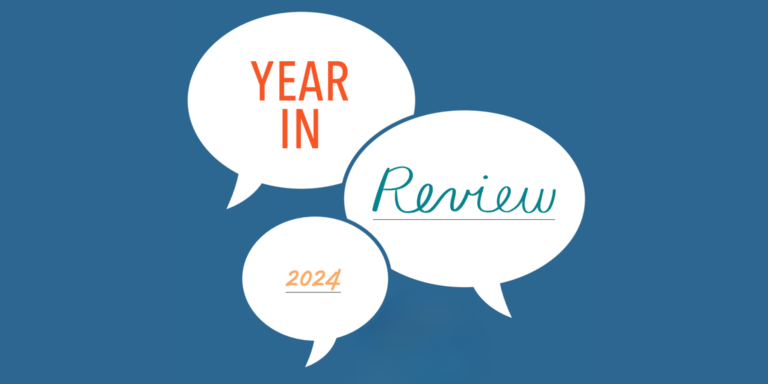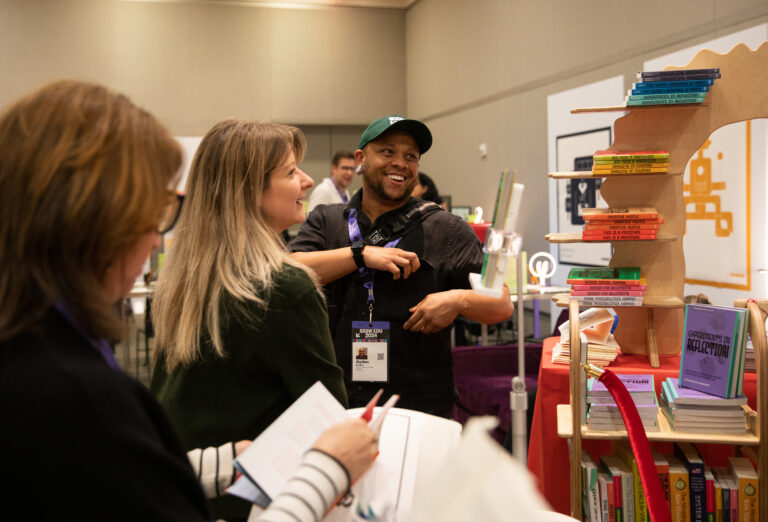This spring, SFE embarked on a previously-unexplored type of collaboration with a grantee. When Library for All decided to rebrand as NABU.org, SFE Relationship Manager Laura Stankiewicz, Head of Communications Adrian Pelliccia, and Executive Director Jessica Traynor worked closely with their leadership team to pursue a new identity that would speak to a wider audience and help them develop new, more compelling narratives around their work.
The scope and scale of the collaboration was ever-changing, and grew to include everything from event planning, to strategic messaging and copywriting, to co-anchoring a panel on the future of philanthropy and collaboration with nonprofits. As we reflect on the process, we’ve compiled some of our key takeaways in order to take stock, and to guide future collaborations.
Clear priorities are key to effective outcomes.
- In situations where there are a lot of variables and many moving pieces, it’s important to remain aware of what’s urgent, and to be mindful of what can be dealt with at a later date.
Be respectful of autonomy.
- As an outside collaborator, no one is required to take your advice — grantees have every right to go their own way, so check egos at the door. Similarly, an in-kind service-based relationship should never be set up such that a grantee feels obligated to listen to everything a service provider has to say. Avoid scenarios that create this dynamic, and steer clear of contracts that might enforce it.
Maintain a collaborative mindset.
- Whether you’re the grantee asking for help, or the collaborator who’s providing it, it’s important that everyone feels like they’re on the same team. Collaborators who aren’t as embedded in a project, or are contributing on a limited basis, should remember that they play a supporting role in a much bigger picture, and commit to that function fully. Grantees should feel empowered to ask for help wherever and whenever they need it, and acknowledge the limits of what their collaborators are able to provide.
Always be mindful of your work’s scope.
- A project might sound manageable at the outset, but always make sure to take into account the many steps, approvals, and contingency plans that can turn what might seem like a two week project into a ten week project. When grantees pitch collaborative projects, they should try to allot time and resources to things going wrong, or taking more (or less) time than initially expected. Similarly, in-kind service providers should use the planning stage to set firm boundaries, and recognize scenarios in which their help might not be helpful any more.
NABU.org officially launched on June 28th — they’re working to create a more literate world by developing and distributing local-language books, which help children all over the world learn to read in languages they understand. Learn more about their work at www.NABU.org.





